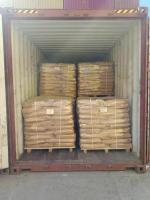Super absorbent polymers (SAPs) used in medical solidification
Super absorbent polymers (SAPs) are highly effective materials that can absorb and retain large amounts of water and other liquids. They are widely used in a range of applications, including agriculture, hygiene products, and medical waste solidification. In this article, we will explore the application of super absorbent polymers in medical waste solidification in detail.
Medical Waste and its Challenges
Medical waste is any waste generated during medical activities, such as hospitals, clinics, laboratories, or other health care settings. Medical waste includes sharps, infectious waste, pathological waste, radioactive waste, and hazardous waste, among others. This type of waste poses significant risks to human health and the environment if not managed properly. The improper disposal of medical waste can lead to the transmission of infectious diseases, environmental pollution, and contamination of soil and water sources.
Medical waste management is a challenging task due to the complexity of the waste streams and the variety of waste types that require different handling and disposal methods. Additionally, the large volume of medical waste generated by health care facilities requires efficient and cost-effective disposal methods.
Traditionally, medical waste is solidified using chemical or heat-based methods. However, these methods have several drawbacks, including high costs, environmental impacts, and safety concerns. Chemical solidification methods use cement-based mixtures to solidify the waste. These mixtures can cause groundwater contamination and emit harmful gases during the curing process. On the other hand, heat-based methods require high temperatures to solidify the waste, which can be expensive and energy-intensive.
Super Absorbent Polymers: Properties and Applications
Super absorbent polymers (SAPs) are water-absorbing polymers that can retain water up to several hundred times their weight. SAPs are made of cross-linked polymers that can absorb water through hydrogen bonding and Van der Waals forces. SAPs are widely used in a range of applications due to their excellent water-absorbing properties, including agriculture, hygiene products, and medical waste solidification.
SAPs are highly effective in solidifying medical waste due to their high water-absorbing capacity and low cost. SAPs can quickly absorb the liquid content of medical waste and form a solid mass that is easy to handle and dispose of. The solidified waste has a low water content, reducing the risks of leakage, and is more stable, reducing the risks of spreading infectious diseases.
SAPs are also biodegradable and environmentally friendly, making them an excellent choice for medical waste solidification. Biodegradable SAPs break down into non-toxic materials, reducing the environmental impact of waste disposal.
Super Absorbent Polymers in Medical Waste Solidification
Super absorbent polymers have been widely used in medical waste solidification due to their excellent properties and cost-effectiveness. The application of SAPs in medical waste solidification has several advantages, including:
1. Efficient Solidification: SAPs can quickly absorb the liquid content of medical waste and form a solid mass that is easy to handle and dispose of. The solidified waste has a low water content, reducing the risks of leakage, and is more stable, reducing the risks of spreading infectious diseases.
2. Reduced Volume: SAPs can significantly reduce the volume of medical waste by solidifying it. This reduction in volume reduces the storage space and transportation costs of medical waste, making it more cost-effective.
3. Low Cost: SAPs are relatively low cost compared to traditional solidification methods, reducing the overall cost of medical waste disposal.
4. Environmentally Friendly: SAPs are biodegradable and environmentally friendly, reducing the environmental impact of waste disposal.

